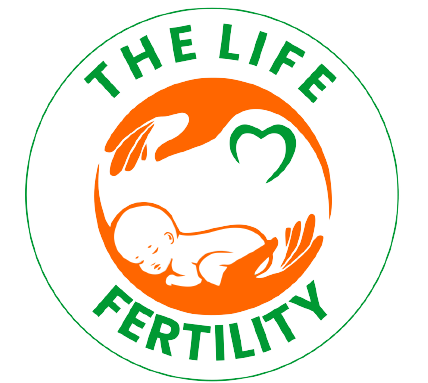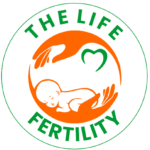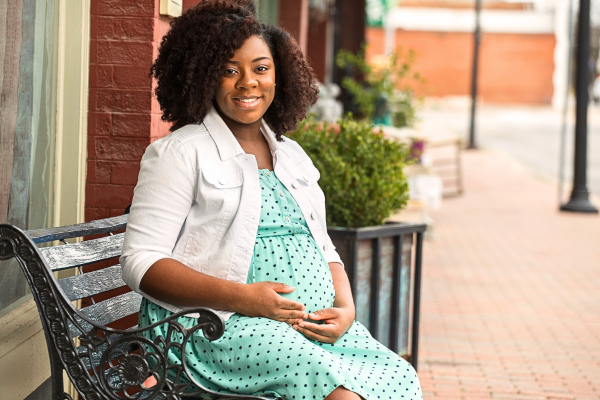Introduction
The Biological Clock: Understanding Fertility Decline with Age
As women age, their fertility naturally declines. This is a well-known fact, but the underlying reasons may not be as widely understood. The primary driver of this fertility decline is the gradual depletion of a woman’s egg supply, known as her ovarian reserve. Over time, the quality and quantity of a woman’s eggs diminish, making it increasingly challenging to conceive and carry a pregnancy to term.
The decline in fertility begins as early as a woman’s mid-30s, with a more rapid decline occurring after the age of 40. This is because the number of viable eggs a woman has at birth, typically around 1-2 million, gradually decreases over the course of her reproductive years. By the time a woman reaches her 40s, she may have only a few hundred thousand eggs remaining, and the quality of these eggs also tends to decline. Factors such as lifestyle choices, medical conditions, and environmental exposures can further contribute to this fertility decline.
Understanding the natural progression of fertility decline is crucial for women who are considering starting a family later in life. By being aware of the biological clock, women can make informed decisions about their reproductive goals and explore options for preserving or enhancing their fertility, if necessary.
Table of Contents
Fertility Facts All Women Over Age 40 Should Know
As women get older, their ability to conceive decreases as a result of a reduction in both the quantity and quality of eggs stored in the ovaries. By the age of 40, a woman’s chances of getting pregnant naturally are significantly reduced. It becomes harder for older women to conceive without medical assistance such as fertility treatments. Additionally, the risk of miscarriage and chromosomal abnormalities in babies increases with maternal age. Women over 40 may also experience a decline in reproductive hormone levels, leading to irregular periods and other menopausal symptoms. It is important for women in this age group to be aware of these fertility facts and to consider consulting with a reproductive specialist if they are trying to conceive.
Ovarian Reserve: Assessing Egg Quality and Quantity
Ovarian reserve refers to the number and quality of a woman’s remaining eggs, which are stored in the ovaries. This measure is an important indicator of a woman’s fertility potential, as it reflects her ability to produce viable eggs for conception. Evaluating ovarian reserve is particularly crucial for women over the age of 40, as it can provide valuable insights into their fertility status and guide their family planning decisions.
There are several methods for assessing ovarian reserve, including blood tests and imaging techniques. Blood tests, such as measuring the levels of follicle-stimulating hormone (FSH) and anti-Müllerian hormone (AMH), can provide information about the quantity and quality of a woman’s remaining eggs. These tests can help identify any potential issues with ovarian function and guide the development of a personalized fertility treatment plan.
In addition to blood tests, imaging techniques, such as transvaginal ultrasound, can be used to evaluate the number of antral follicles (small, fluid-filled sacs that contain immature eggs) present in the ovaries. This measurement, known as the antral follicle count (AFC), can also serve as an indicator of a woman’s ovarian reserve.
By understanding their ovarian reserve, women over 40 can make informed decisions about their fertility options, including the potential need for assisted reproductive technologies or the consideration of alternative family-building paths, such as egg donation or adoption.
Hormonal Changes: How Menopause Affects Fertility
As women approach their 40s and 50s, they begin to experience the hormonal changes associated with the menopausal transition. This transition, known as perimenopause, is characterized by fluctuations in the levels of reproductive hormones, such as estrogen and progesterone, which play a crucial role in fertility.
During perimenopause, the ovaries gradually produce less estrogen, and the menstrual cycle becomes more irregular. These hormonal changes can have a significant impact on a woman’s ability to conceive naturally. As the ovaries produce fewer eggs and the quality of the remaining eggs declines, the likelihood of successful fertilization and implantation decreases.
Furthermore, the hormonal imbalances associated with perimenopause can lead to other reproductive challenges, such as irregular ovulation, increased risk of miscarriage, and a higher incidence of chromosomal abnormalities in the developing fetus. These factors can make it increasingly difficult for women over 40 to achieve and maintain a healthy pregnancy.
Understanding the hormonal changes that occur during the menopausal transition is essential for women who are considering starting a family later in life. By being aware of these changes and their impact on fertility, women can make informed decisions about their reproductive options and seek appropriate medical guidance and support.
Assisted Reproductive Technologies: Options for Older Women
| Fact | Statistic |
|---|---|
| Chance of natural pregnancy | 5% |
| IVF success rate | 10-15% |
| Age-related infertility | Increases after age 35 |
| Chances of miscarriage | 30-50% |
For women over the age of 40 who are struggling to conceive, assisted reproductive technologies (ART) can offer hope and alternative pathways to building a family. These advanced medical interventions can help overcome the challenges posed by age-related fertility decline and increase the chances of successful conception and pregnancy.
One of the most widely known ART options is in vitro fertilization (IVF), which involves the retrieval of a woman’s eggs, their fertilization with sperm in a laboratory, and the subsequent transfer of the resulting embryo(s) back into the uterus. IVF can be particularly beneficial for older women, as it allows for the selection and transfer of the most viable embryos, increasing the chances of a successful pregnancy.
Another ART option that may be considered by women over 40 is the use of donor eggs. This involves the use of eggs donated by a younger, fertile woman, which are then fertilized with the partner’s or a donor’s sperm and transferred to the older woman’s uterus. Donor egg IVF can be a viable alternative for women with diminished ovarian reserve or poor egg quality, as it circumvents the age-related decline in fertility.
It is important to note that the success rates of ART for women over 40 can vary, and factors such as the woman’s overall health, the cause of infertility, and the specific ART procedure used can all influence the outcomes. Consulting with a fertility specialist is crucial for older women to understand their individual circumstances and explore the most appropriate ART options.

Lifestyle Factors: Maintaining Reproductive Health
Maintaining a healthy lifestyle is essential for women of all ages, but it becomes particularly important for those over 40 who are trying to conceive. Certain lifestyle choices can have a significant impact on fertility and the ability to carry a pregnancy to term.
One of the key factors in maintaining reproductive health is a balanced diet. A diet rich in nutrients, such as folic acid, antioxidants, and healthy fats, can help support egg quality and overall reproductive function. Additionally, maintaining a healthy weight through regular exercise can improve fertility, as excess weight or obesity can contribute to hormonal imbalances and other reproductive challenges.
Stress management is another crucial aspect of maintaining reproductive health. Chronic stress can disrupt the delicate balance of hormones necessary for conception and can also increase the risk of miscarriage. Engaging in stress-reducing activities, such as meditation, yoga, or counseling, can help women over 40 manage the emotional and physical demands of fertility challenges.
Avoiding harmful substances, such as tobacco, alcohol, and certain medications, is also essential for preserving fertility. These substances can have a detrimental effect on egg quality, embryo development, and overall reproductive function.
By adopting a holistic approach to their health and well-being, women over 40 can optimize their chances of conceiving and carrying a healthy pregnancy to term. Consulting with a healthcare provider can help individuals develop a personalized plan to address any lifestyle factors that may be impacting their fertility.
Fertility Preservation: Considering Egg Freezing
As women approach their 40s, the option of fertility preservation through egg freezing may become increasingly relevant. Egg freezing, also known as oocyte cryopreservation, is a process in which a woman’s eggs are retrieved, frozen, and stored for potential future use.
The primary benefit of egg freezing for women over 40 is the ability to preserve their fertility at a younger age, when their egg quality and quantity are still relatively higher. This can provide a safety net for those who are not yet ready to start a family or who are facing age-related fertility decline.
When considering egg freezing, women over 40 should carefully weigh the potential benefits and limitations of the procedure. While egg freezing can offer a chance to conceive in the future, the success rates of using frozen eggs tend to decrease with the woman’s age at the time of retrieval. Additionally, the process of egg freezing can be physically and emotionally demanding, and the financial costs associated with it should also be taken into account.
Consulting with a fertility specialist is crucial for women over 40 who are interested in exploring egg freezing. The specialist can provide personalized guidance on the feasibility and potential outcomes of the procedure, based on the individual’s medical history, ovarian reserve, and reproductive goals.
By understanding the options for fertility preservation, women over 40 can make informed decisions about their reproductive future and take proactive steps to safeguard their chances of conceiving, should they choose to do so at a later time.
Conception Challenges: Increased Risks of Miscarriage and Chromosomal Abnormalities
As women age, the risks of certain pregnancy-related complications, such as miscarriage and chromosomal abnormalities, tend to increase. This is primarily due to the decline in egg quality and the higher incidence of genetic errors that can occur as a woman’s eggs age.
Miscarriage, the spontaneous loss of a pregnancy before the 20th week, is more common in women over the age of 40. Studies have shown that the risk of miscarriage can be as high as 50% or more for women in their 40s, compared to a risk of around 15% for women in their 20s.
In addition to the increased risk of miscarriage, women over 40 also face a higher likelihood of chromosomal abnormalities in their developing fetuses. Conditions such as Down syndrome, trisomy 18, and trisomy 13 are more prevalent in older mothers, as the eggs become more susceptible to genetic errors over time.
To manage these increased risks, healthcare providers may recommend additional screening and diagnostic tests, such as chorionic villus sampling or amniocentesis, to assess the fetal genetic status. They may also suggest the use of preimplantation genetic testing for in vitro fertilization (IVF) cycles to select the healthiest embryos for transfer.
While the increased risks of miscarriage and chromosomal abnormalities can be daunting, there are strategies and support systems available to help women over 40 navigate these challenges. By working closely with their healthcare team and exploring all available options, these women can increase their chances of a healthy pregnancy and successful birth.
Emotional Aspects: Coping with Fertility Struggles
Navigating the challenges of fertility as a woman over the age of 40 can be an emotionally taxing experience. The realization of age-related fertility decline, the potential need for assisted reproductive technologies, and the increased risks of pregnancy complications can all contribute to feelings of stress, anxiety, and even grief.
It is important to acknowledge the emotional toll that fertility struggles can take on older women. The desire to have a child, coupled with the awareness of diminishing chances, can be a source of profound sadness and frustration. Additionally, the financial and physical demands of fertility treatments can add to the emotional burden.
To cope with these emotional challenges, women over 40 should prioritize self-care and seek support from their loved ones, as well as from mental health professionals if needed. Engaging in stress-reducing activities, such as meditation, counseling, or support groups, can provide a much-needed outlet for processing these complex emotions.
It is also crucial for women to be kind and compassionate with themselves throughout this journey. Recognizing and validating their feelings, rather than suppressing them, can help foster a sense of resilience and emotional well-being.
By addressing the emotional aspects of fertility challenges, women over 40 can better navigate the physical and practical aspects of their reproductive journey. With the right support and coping strategies, they can find ways to manage the emotional toll and focus on the path forward, whether that involves pursuing fertility treatments, exploring alternative family-building options, or finding peace with their circumstances.
Seeking Professional Guidance: Consulting with Fertility Specialists
For women over the age of 40 who are facing fertility challenges, seeking the guidance of a qualified fertility specialist is crucial. These medical professionals have the expertise and experience to provide personalized care and support throughout the reproductive journey.
Fertility specialists, such as reproductive endocrinologists, can conduct a comprehensive evaluation of a woman’s fertility status, including assessing her ovarian reserve, identifying any underlying medical conditions, and developing a tailored treatment plan. They can also provide guidance on the various assisted reproductive technologies available and their potential success rates for older women.
When selecting a fertility specialist, it is important for women over 40 to choose a provider who has extensive experience in treating patients in their age group. This ensures that the specialist is well-versed in the unique challenges and considerations that come with age-related fertility decline.
In addition to medical expertise, a good fertility specialist should also possess strong communication and empathy skills. They should be able to listen to the patient’s concerns, explain the treatment options in a clear and understandable manner, and provide emotional support throughout the process.
By working closely with a fertility specialist, women over 40 can gain a better understanding of their reproductive health, explore all available options, and make informed decisions about their family-building goals. This collaborative approach can help increase the chances of a successful pregnancy and a healthy birth outcome.
Conclusion- Empowering Choices and Knowledge For women
Understanding fertility is crucial, especially for women over 40 who may face unique reproductive challenges. By being aware of essential fertility facts, such as the impact of ovarian reserve and hormonal changes, women can make informed decisions about their reproductive health. Assisted reproductive technologies, lifestyle factors, and fertility preservation options offer pathways to achieving pregnancy despite age-related fertility decline. Consulting with fertility specialists ensures personalized guidance and support, empowering women to navigate their fertility journey with confidence and optimism.
If you are over 40 and considering starting a family, contact The Life Fertility today to explore your options with IVF and other advanced fertility treatments. Our experienced specialists are here to provide you with the personalized care and support you need to achieve your dream of parenthood. Take the first step towards your fertility journey and reach out to us now.




